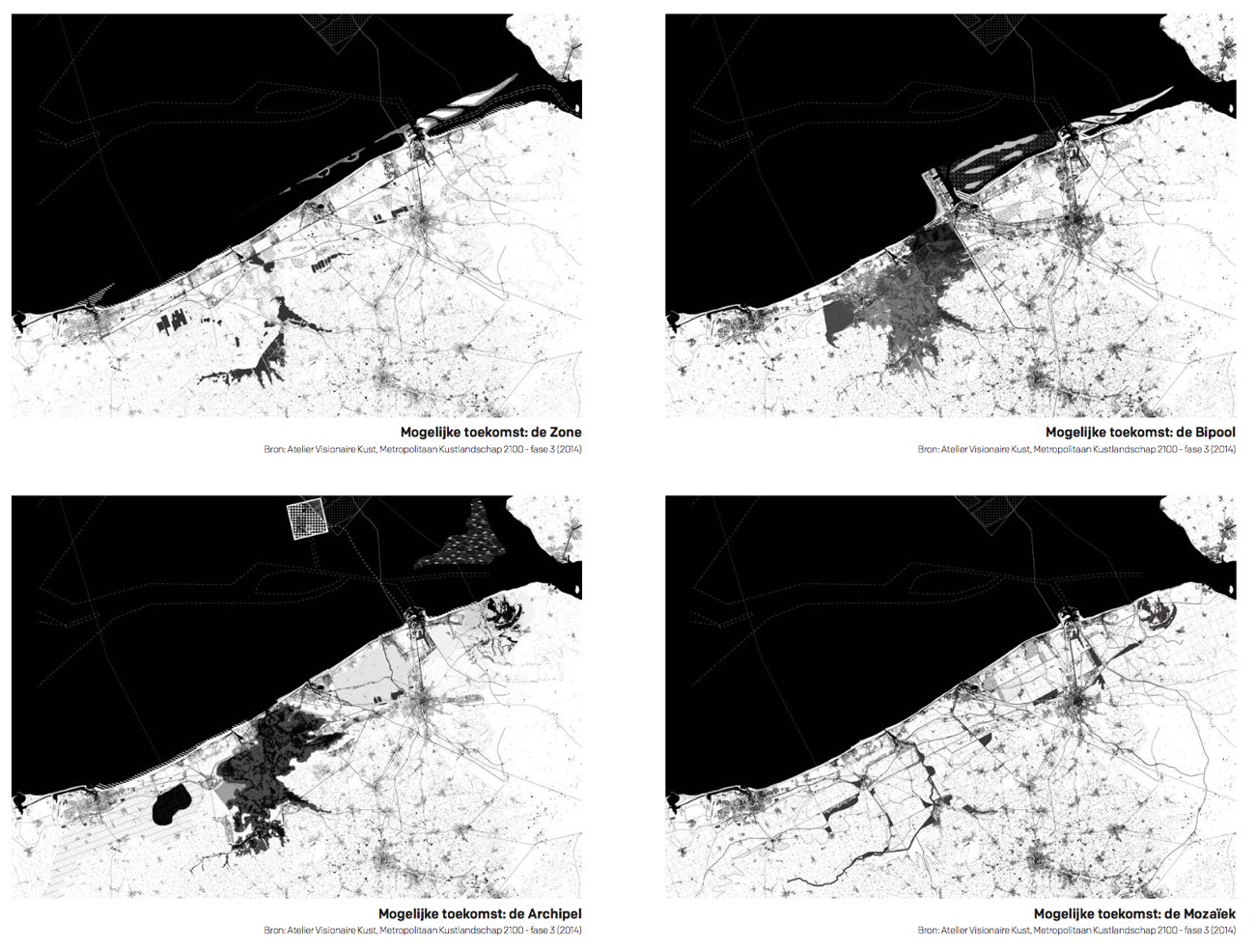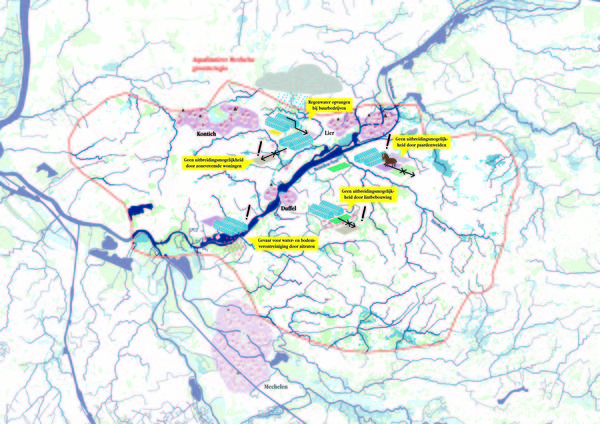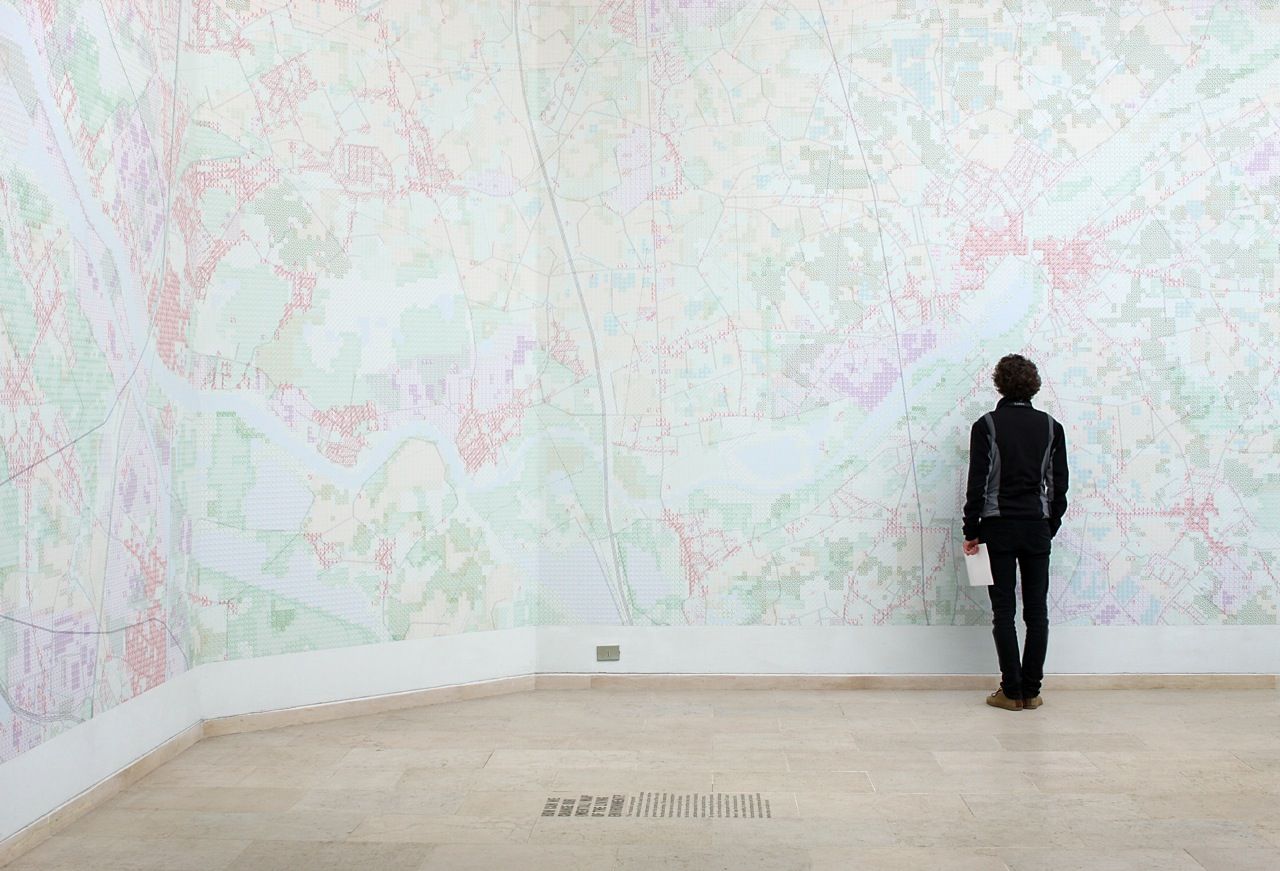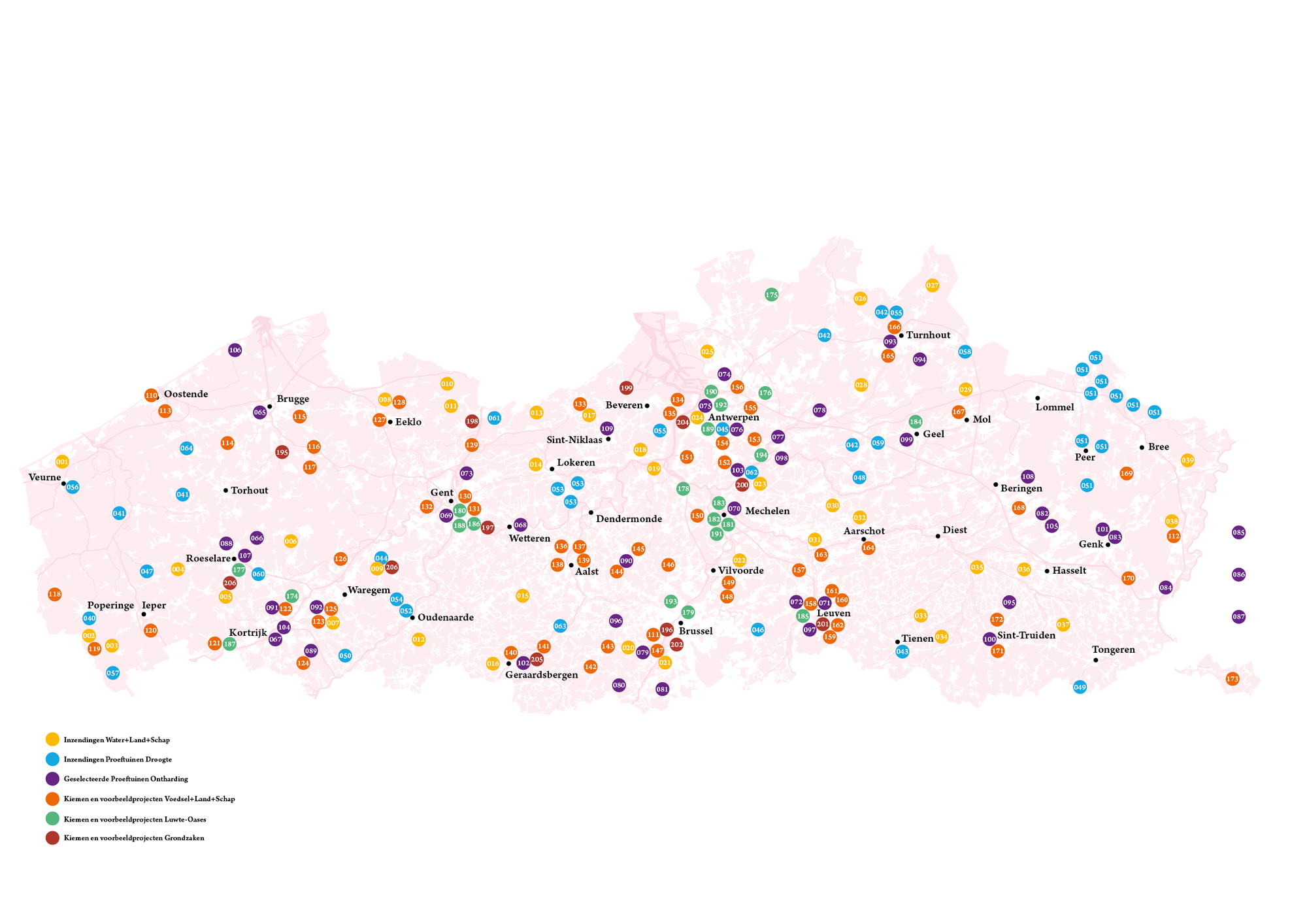Open space is vitally important. We need open space to safeguard our food supply and biodiversity. The open space also provides our urban society with many other services. It mitigates the effects of climate change, has a cooling function, offers buffer capacity for water shortages or excesses and is needed to generate renewable energy. What’s more, the open space affords us moments of calm, silence and experiential aspects that serve as an essential counterweight to hectic urban living.
Over the course of the past century, the open space has been under pressure. We are increasingly eroding the open space for additional urbanisation, for living and working, for recreation or infrastructure. Open space has become a scarce commodity. In Flanders, seven hectares (or ten football pitches) of open space disappear every day. Despite the ‘concrete stop’ – or ‘construction shift’ – announced in the Spatial Policy Plan for Flanders, we continue to swiftly devour the open space.







